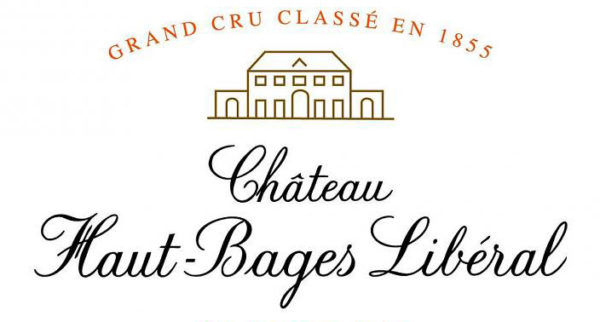
The Estate
The name of Haut‐Bages Libéral is derived from the Libéral family, who owned the property in the early 18th century. Passing the estate from father to son, they sold their harvest to the Netherlands and Belgium. Over time, the owners acquired some of the best terroir in Pauillac, expanding half of their vineyards to abut the estates of Château Latour and Château Pichon Baron (on the heights of the locality Bages, a large plateau in the south of Pauillac). Haut‐Bages Libéral was classified as 5th Growth in 1855.
In 1960, the Cruse family, owners of Château Pontet Canet, purchased the property. They would launch an extensive program of replanting the vineyard. However, it was in 1983 with the arrival of the Villars family that Château Haut‐Bages Libéral really recovered its former glory. Today, the property is run by Claire Villars‐Lurton. She undertook an overhaul of the wine making and directs the vineyard management towards sustainable viticulture.
The estate has been certified organic since 2019 and biodynamic since 2021.
Owner: Claire Villars Lurton
Production Manager: Thomas Bontemps
Wine Making Consultant: Eric Boissenot

Château Haut-Bages Libéral
Production Area: 30 hectares
Soil: Deep Quaternary gravel on limestone‐clay substrate
Grape Varieties: Cabernet Sauvignon, Merlot
Average Age of the Vines: 35 years old
Plantation Density: 10,000 plants/ha
Average Yield: 650 g/plant
Growing: Traditional integrated wine growing management
Harvest: Hand picking
Vinification: Traditional in stainless and concrete vats, whose volumes are proportional to the plots. Fermentation on the skins lasts 18 to 24 days.
Aging: In oak barrels for 16 months (40% new oak)
Cellaring Potential: 5-30 years
Tasting Notes: The nose is complex with notes of cassis, smoky and a hint of cedar. The mouth is also fruity with a slightly spicy touch and show an admirable roundness. An expressive, voluptuous wine with fine, freshness, and a beautiful aromatic persistence.

Le Haut-Médoc de Haut-Bages Libéral
Overview: The Second Wine of the estate is Le Haut-Medoc de Haut-Bages Libéral. This wine is produced using all the same facilities and methods as the First Wine.
Production Area: 8 hectares
Soil: Clay and limestone
Grape Varieties: 60% Cabernet Sauvignon, 40% Merlot
Average Age of the Vines: 20 years
Plantation Density: 6,500 plants/ha
Average Yield: 800 g/plant
Vines: Traditional and sustainable wine-growing
Harvest: Mechanical harvest with integrated sorting system and sorting table
Vinification: Traditional. In thermo-regulated stainless steel vats. Fermentation on skins for 18 to 24 days
Aging: 12 months in oak barrels
Production: 28,000 bottles
Cellaring Potential: 1 to 7 years

La Chapelle de Haut-Bages Libéral
Overview: Created in 1988 by the mother of Claire Villars-Lurton, who was at that time in charge of the vineyard, La Chapelle de Haut-Bages Libéral reflects another aspect of the exceptional terroir on which the vines grow.
The vines that give birth to La Chapelle are younger and exalt the minerality known from Haut-Bages Libéral as well as the crunchiness of its fruit, marked by black cherries.
Like the Grand Vin, La Chapelle is composed mostly of Cabernet Sauvignon. Its very smooth tannins make it an accessible wine to be enjoyed, combining fruitiness with great elegance.
Production Area: 30 hectares, Pauillac appellation.
Soil: Gravels on clay and limestone around the property and deep gravels on the plateau of Bages.
Grape Varieties: Cabernet-Sauvignon, Merlot
Viticulture: Certified organic and biodynamic.
Vinification: Plot and tailor-made vinification (adapted in terms of material, duration and temperatures). Maceration with the addition of neutral gas to stimulate gentle movements. A pumping over of one volume / day. 24 days of maceration. Vertical pressing for special care to the presses.
Aging: 12 months aging in oak barrels.
Tasting Notes: A bright vintage. Notes of red fruits, mint, sweet and floral spices. Finely balanced and crispy.

Ceres Haut-Médoc
Overview: CERES is the first organic, natural wine without added sulfur produced by a Grand Cru Classé in Pauillac (also in conversion to biodynamic). Named after the Roman goddess of agriculture and fertility, this cuvée comes from a plot managed in agroecology and agroforestry.
François Houtin, renowned landscape artist, designed the label of the CERES cuvée. It celebrates the vine in its original state, climbing along a resilient old ash tree.
Location: 8 hectares of one single plot located on the hamlet of Vertheuil, in northern Pauillac.
Soil: Clay-limestone
Grape Varieties: 100% Merlot
Viticulture: Certified organic. Managed in agroecology and agroforestry. Conversion to biodynamics.
Vinification: Maceration with the addition of neutral gas to stimulate gentle movement. Pumping over one volume/day. 24 days of maceration. Vertical pressing Azote inerting during transfers to protect musts from oxidation. No added sulphites.
Aging: 6 months in concrete vats.
Annual Production: About 20,000 bottles.
Serving Temperature: 16-17°C
Tasting Notes: A fruity wine with floral notes on the nose and on the palate. Supple tannins with a fresh, chalky structure and nice acidity over the length.
Cellaring: Consume immediately or within 2-3 years depending on storage conditions.


